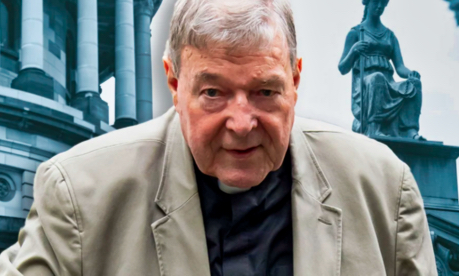For more than four years, the fate of Australia’s most powerful Catholic cleric rested on the word of a former choirboy.
For police, for the courts and the church, it all came down to the truthfulness, credibility and believability of a single witness, alone and unsupported in what he alleged against George Pell.
In an application lodged this week for special leave to appeal his case to the High Court, Pell’s legal team shifted ground. It is both a vindication of the choirboy and a last bid by Pell, now serving a six-year prison sentence, to have his child sex convictions quashed.
The Cardinal’s lawyers no longer question the credibility of the man who first told police in 2015 that Pell raped him and sexually assaulted a friend in St Patrick’s Cathedral when they were 13 years old.
They no longer dismiss Pell’s accuser as a fantasist or argue that the County Court jury should have done the same.
Instead, they contend that both sides of this bitterly contested prosecution should co-exist; that Pell’s accuser can be believed and the Cardinal acquitted of all charges and released from jail.
“Can belief in a complainant be used as a basis for eliminating doubt otherwise raised and left by unchallenged exculpatory evidence?” Pell’s senior counsel Bret Walker says, before answering his own rhetorical question. “Believing a complainant … does not equate to the elimination of reasonable doubt otherwise raised.”
The president of the Victorian Bar Council, Matthew Collins, QC, says it is a nuanced argument which, if entertained by the High Court, will confront our assumptions about truth and lies, guilt and innocence.
“In any way you look at it, it’s a challenge to the criminal justice system,” Dr Collins tells The Age.
“To reverse the jury verdict on the basis of the alleged improbabilities of the offence occurring is to discount the sanctity of the jury deliberations. On the other hand, to uphold a jury verdict in circumstances where the evidence objectively points to a reasonable doubt would be to undermine the justice system in a different way.
“The argument now is not about the credibility of the complainant. That is taken as accepted. The argument now is about whether the Court of Appeal applied too high a standard of proof, in effect requiring Pell to prove his innocence.”
To understand Pell’s pitch to the High Court, The Age asked two of the state’s most respected senior counsels, Dr Collins and criminal law expert Justin Hannebery, SC, to unpack his application for special leave.
Mr Hannebery says most sexual assault cases turn on the same question; whether you can accept the truthfulness of the complainant beyond reasonable doubt. “In the vast majority of cases, that is the only question,” he says. In this regard, Pell’s case is unexceptional.
To attract the interest of the High Court, Pell is not arguing that the jury’s verdict was unreasonable on all the evidence. That question has already been asked and answered before the Victorian Court of Appeal.
“They are not appealing a jury verdict, they are appealing a Court of Appeal decision,” Mr Hannebery says. “To get leave, they have to establish there is an error in the way the Court of Appeal has approached the question, and that it is an error that has got some public importance to it or is otherwise in the interests of justice to get taken up by the High Court.”
In doing so, Pell’s legal team has withdrawn its attacks on the evidence of the choirboy and sharpened its focus on how the Court of Appeal, and particularly the majority decision of Chief Justice Anne Ferguson and Court of Appeal President Chris Maxwell, treated the evidence of other witnesses in the case. Continue reading
Additional readingNews category: Analysis and Comment.




